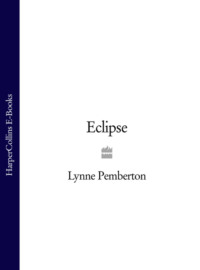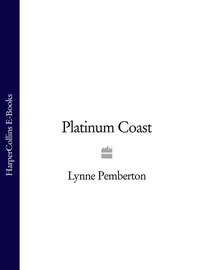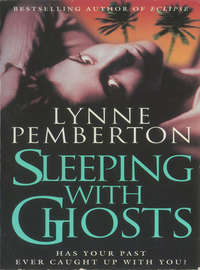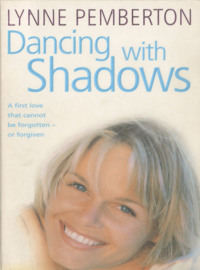
Полная версия
Marilyn’s Child
Leaning forward to lace up my shoes, I say, ‘I wish I had a beautiful new dress to wear, like the one Aileen Shaunessy wore to church last week. Didn’t you think she looked just grand?’
Looking me up and down she replies, ‘Sure, Aileen’s dress was grand, but she hasn’t got your figure to carry it off. You’d look beautiful in a paper bag, Kate O’Sullivan. You’ve got the body of a bloody angel, a sight for sore eyes.’ She lowers her voice to a whisper. ‘Can you imagine Mother Thomas’s face if you swanned into church dressed up like a bloody film star? She’d probably have a heart attack.’
I grin. ‘I wish.’
‘And to be sure, one glimpse of your titties would be enough to make the new curate forget his vows.’
Still grinning, I say, ‘That’ll do, Bridget, and it’s very beautiful you’re looking this fine morning too.’
She beamed. ‘You really think so?’
I squeeze her hand. ‘I do that. You look grand.’ I’m telling the truth, not the whole truth but partly. The midnight-blue serge skirt trims Bridget’s stocky body, taking inches off her generous hips, and the colour complements her dark auburn hair. But beautiful she is not, nor ever will be, lest it be in the eye of the beholder. Given a beholder that is short-sighted, or just plain blind with love. I hope Bridget will find the latter. She is, after all, my best friend, better than a sister, and I love her very much.
Hand in hand we leave the dormitory and pass Rosemary Connelly on the stairs. She whispers, ‘Mother Thomas is on the warpath. She found a dirty sanitary towel on the floor of the downstairs lavvy.’ Mary looks directly at me.
‘Not guilty,’ I mutter.
As we continue downstairs Bridget digs me in the ribs. ‘Don’t even think about it.’
I know she’s referring to my first period. Mother Thomas had examined my knickers and after finding one spot of blood had made me wear them on my head for the remainder of that day. I have to fight hard to stop dredging up these unwanted memories, yet even in the doing I know it won’t make them go away – well, not forever. What was it Father Steele had said about our childhood baggage? I think instead about the future, it has always helped me to cope with the past and the present. Soon I’ll be sixteen. I’ve longed to be sixteen since I was ten. The magic age, time to leave the orphanage, to be in charge of my own life. Yet now it’s almost upon me I feel more than a little scared. You’re going to be famous, I remind myself, you can look after yourself. But could I? Would I? The doubts jump around my head.
I’m very tall for my age, five foot eight, and still growing, as Lizzy Molloy was fond of saying, in all the right places. ‘It’s a model for them fancy glossy magazines you should be, Kate O’Sullivan. A top model you’d make, to be sure.’ I can think of nothing worse than being a model: being told what to do; how to stand; what to wear. I was going to paint. The only time I felt truly happy was when I was painting. It made me feel different, whole and important, like I had something special to say. As we reach the foot of the stairs, I turn to Bridget. Tears well up in the back of my eyes and I’m not sure why.
‘I’m going to be sixteen soon. I’ve longed for the day, but as it gets closer I’m feeling a bit strange. I’ve never known anything but this place.’
The glassy sheen of concern in Bridget’s eyes makes my insides loosen, and I want to hug her when she says, ‘You, Kate O’Sullivan, are going to be a famous artist. You’re a brilliant painter. I only wish I was good at something.’ She squeezes my hand. ‘But I know how you feel.’ Her bright smile fades. ‘For as long as I can remember, I’ve dreamt about leaving here. When I was very small I used to dream that my mam and da hadn’t died. They’d gone away to work, to make lots of money, and had put me into the orphanage until they had made enough to come back for me. The dream always ended with them leading me up a long path, their arms loaded with presents. At the end of the path there’s a lovely cottage covered in ivy. Mam and da tell me it’s our home; we’re all going to live there. I always hated waking up from that dream, and every night I used to go to sleep trying to dream it again. Yet now when I think about leaving here I get the shits. I’ve no place to go, I don’t have any family, only you, Kate, you’re like a sister to me and you’ll be leaving four months before me. I’m going to miss you so much.’
I can’t stand to see her sad, or afraid; I’ve seen both too often. The trouble is it makes me feel the same, so with more enthusiasm than I actually feel I say, ‘Why don’t you come to Dublin, Bridget? You can get a job and we can share a flat.’
Even in the saying I knew Bridget wouldn’t be coming to Dublin. She wasn’t going anywhere. Bridget was small town, and, after all, there had to be the Bridgets of the world. She would, I knew, let one of the local lads get inside her secret box, as she referred to it. Then she’d get married and let him pump his hot sperm into her every Friday night after the pub, because that’s what all the men round here did. She’d have babies, lots of them, be a good mother, try to be a good wife, and pretend to be a good Catholic. Doing without, and dying inside.
That wasn’t for me. I wasn’t like Bridget or Mary or most of the other girls I knew. I had my life all mapped out; I’d been planning it since I was ten. First I was going to go to Dublin, then London, perhaps even America. People would come from all over the world to buy my paintings, and I’d be rich; very rich. I’d be interviewed in newspapers, asked to appear on TV, on talk shows and the like. Of course I’d come back to the village to see Bridget and her fat babies. Then I’d cruise up to the orphanage in my chauffeur-driven car, dressed in beautiful clothes and smelling of expensive perfume. Mother Thomas would open the door. At first she wouldn’t recognize me, but when I spoke shocked recognition would register on her wizened face. With my head held high and wearing my best smile I’d say, ‘I told you so.’
Chapter Two
It’s warm in church; steam rises from damp, closely packed bodies. Judging by the size of the congregation, I reckon most of the parish has turned out to get a glimpse of the new curate. My eyes follow the lead altar boy, Eugene Crowley, as he emerges from the sacristy. I used to like Eugene, but that was before he chased me around the school yard and tried to pull my knickers down. I have to admit he looks grand in his scarlet soutane and starched white surplice. I skip Father O’Neill and concentrate on the figure of Father Steele bringing up the rear of the small procession towards the altar.
A quick glance to left and right confirms the eyes of the entire congregation are focused in the same direction. If Gatsby had been in town he couldn’t have asked for a better reception.
Father Declan Steele, to give him his full title, looks wonderful: tall and handsome, God-like – or how I imagine God should look. My left knee begins to tremble; it does this nervous jig from time to time, it’s a damned nuisance and makes me feel stupid. I place the flat of my hand hard on my thigh just above the knee to stop the shaking. This sets the right one off and now both legs are jiggling like I’m having some kind of fit, a bit like Jimmy Conlon, an epileptic, who sits three seats in front of me in class. Only Jimmy froths at the mouth.
Bridget puts her head close to my ear, hissing, ‘He’s a film star all right, should be in Hollywood.’
I nod, whispering in her ear, ‘It’s handsome he is, the most handsome man I’ve ever clapped eyes on.’
Church, for the most part, bores me. Sometimes I listen to Mass, but rarely; I enjoy singing hymns, particularly for the harvest festival, and usually ask God selfish things during prayers.
I’m jammed between Emily Donaghue, the local publican’s new missus, on one side (her hair stinks of stale Woodbines, and there’s a sickly mixture of cheap scent and sweat wafting out from under her arms every time she moves) and Bridget on the other.
I repeat the prayers and responses parrot-like while studying the face of Father Steele. I focus on his deep mouth. I have, according to my class teacher, a fertile imagination. I smile to myself. If Mrs Rourke could see what’s fermenting in the young fresh earth of my mind at this moment, she would drag me off to confession by the ear. The new curate features heavily in sinful thoughts of him being normal – by that I mean not a priest – and of how it would feel to kiss him. Under my breath I repeat, Forgive me, Father, forgive me, Father, for I sin in my thoughts. Then with quick furtive glances I look from side to side, certain that what was going on on the inside must surely show on the outside.
Once Mother Thomas had said she could see into my soul and, to be sure, the devil was there. Foolishly I’d believed her and for months I’d had nightmares of being devoured alive by evil spirits.
My imaginings of Declan Steele the man make me moist between my legs. It’s not the first time I’ve been wet down there. I remember when I was thirteen and Elizabeth Bradley came to live in the orphanage. Elizabeth was from Cork, fifteen, and four months pregnant. She was big-boned and big-breasted and smoked Silk Cut cigarettes. One night I’d woken with a start to the tip of a cigarette glowing eerily in the dark, with Elizabeth Bradley attached to it. Before I could stop her, she’d slipped under my covers and, lying on her back, had handed me the cigarette. My first drag had burnt the back of my throat and made me cough, the second not so much, and by the third I was enjoying the buzz in my head. It was then Elizabeth had put her hand up inside my nightdress. She’d asked me to open my legs. Confused, I’d asked what for, and she’d whispered that she was going to do something nice, something boys did to girls if they let them. She was a lot bigger than me and packed a mean punch, so without questioning I did as she asked. When I’d opened my legs I remember thinking that it was all right to let Elizabeth inside my secret place; after all, how could it be a sin if she had one herself – a secret hole, that is – and anyway she wasn’t a boy. The tip of her forefinger had probed a little before beginning to rotate. Round and round her finger went, until I could feel the wetness on my thighs and I was embarrassed that it would wet the sheets. After a few minutes she’d guided my hand under her nightdress and had shown me how to do the same to her. She had thick hair on her legs and stomach and I was amazed at the big bush of hair between her legs. I had difficulty finding what she called her excitement button, but when I did, her back had arched and she’d spread her legs very wide. I did it to her for a lot longer and, unlike me, she made a lot of noise, moaning sounds, and kept urging me to go faster.
I wriggle my bottom on the hard pew wondering where Elizabeth Bradley is now. She’d left not long after her baby was born. Someone, I think it was Mother Peter, had said she’d returned to Cork.
I watch Eugene move the missal, then ring the bells for communion. Taking communion is the only bit of Mass I enjoy. There’s definitely something kind of divine and sacred about receiving the host and contemplating the visitor inside my body. In fact, it’s the only time I feel even remotely Catholic. I stand in line on the left of the altar rail and shuffle forward to take communion. It’s Father Steele who places the host on my lips, and it’s I who deliberately holds his eyes for longer than necessary. I’m convinced I can see a spark of interest in his midnight-blue gaze, but I’ll dismiss it later as wishful thinking.
In single file we troop down the aisle out of church. The pace is slow, as the congregation stops in turn to be introduced to the new curate. Bridget is far ahead and I’m stuck behind Tom Donaghue, the publican, who has the lumbering gait of a big ugly bullock. Too much beer in his belly, Mrs Molloy says. Where his hairline stops and before his shirt collar starts there’s a wedge of red neck covered in angry boils.
A thick slice of sunlight pours on to Tom’s crown and as I follow him out of church I peer over his shoulder to the top of Father O’Neill’s fiery head. It’s moving up and down rapidly in time to his booming voice. The curate, I guess, will be standing next to Father O’Neill; they usually do. And if he’s anything like the others before him, he will be smiling, the smile fixed as if it had been painted on his face. But then this curate isn’t like his predecessor Father Peter Murphy, who always seemed, to me at least, to be play-acting. ‘Got a secret agenda, that one,’ I’d overheard Mrs McGuire who ran the post office say to one of her customers. She was right. Father Peter was caught with his trousers down, literally, around his ankles, his dick in the mouth of Robbie Donovan, a lad from the next parish, and him a choir boy an’ all. I’d enjoyed the scandal enormously, we all had. It had broken the monotony for a couple of weeks. The men from the Pig and Whistle had raged: ‘Jesus, Mary and Joseph, a man of God and him a slip of a lad! To be sure, the dirty curate should be horse-whipped. If I was the lad’s father sure I’d do the job meself, priest or no bloody priest.’
Mrs McGuire had spoken of her outrage to the local newspaper, and Bridget and I had been thumped around the ears by Mother Thomas for calling Father Peter ‘a dirty old poof.’
Father O’Neill had arranged for the curate to leave the parish quietly, under cover of darkness, else, so Mrs McGuire claimed, the mob from the Pig and Whistle would have lynched him. I didn’t think the men frequenting the pub on Friday nights had the strength to do much lynching, it would interfere with the drinking, but I’d kept my thoughts to myself.
My brain is aching for something to say to the curate, something interesting to grab his attention. I could pretend to faint, have him catch me, and swoon in his arms. On the other hand, I might get Father O’Neill, who sometimes has rank breath and terrible dandruff. When I reach the entrance to the church I see Father Steele surrounded by a tight bunch of people. There’s a young couple I’ve never seen before, the man thick-set with a bull-like neck, his wife a tall, painfully thin woman who looks like she’s not long for this world. She’s holding the hand of a small boy with big doe eyes and the same thin face as her. Bridget is next to them, standing awkwardly, goggle-eyed and slack-lipped, staring into the face of the curate like he’s the new Messiah.
On Bridget’s right is oul’ Mary O’Shea, a widow who owns the village store where Bridget has just started to work on a Saturday – a trial period, according to Mary O’Shea, who might or might not offer her a full-time job depending on how she works out between now and October when Bridget turns sixteen. Oul’ Mary’s clutching her rosary beads as if her life depends on it, and edging closer to the curate, beaming for all she’s worth.
It’s the first time I’ve ever seen her smile. As I get closer I can hear her crowing about her trip to Lourdes last year.
Stepping in front of Mary O’Shea, I say in a deliberately loud voice, ‘Well, Father, it’s grand to see you again and on such a beautiful morning. What did I tell you last night, Bridget?’ Before Bridget can reply, I continue: ‘I said the sun would shine on the morning of Father Steele’s first Mass in Friday Wells. True, it rained earlier, but just look at the sky now, won’t you: not a cloud in sight. The sun shines on the righteous, that’s what I say.’
‘Is that so, Kate?’ There’s no mistaking a hint of mockery in Father Steele’s voice, and suddenly it’s unsure of myself I’m feeling.
Mary O’Shea trills from somewhere behind my back, ‘Kate O’Sullivan, would you be so good as to step to one side. I was telling the good Father here about my trip to Lourdes last year. He was mighty interested, weren’t you, Father?’ I feel the tip of Mary’s finger prod violently between my shoulder blades. It hurts, and I want to poke her back to let her know just how much. ‘Before we were so rudely interrupted, that is. Honest to God, Kate O’Sullivan, you’ve got no manners. I don’t know what the good sisters teach you up there; nothing, to be sure, nothing at all. Bridget here is just the same. No respect for an old woman.’
Bridget glares. With a shrug, I reluctantly take a small step to one side. Mary eases her stout body forward and with some skill manages to edge me back a few feet. Undefeated, I stand on tiptoe, looking over Mary’s head in the curate’s direction. He glances up, I catch his eye and we exchange a knowing look. I can tell he’s feigning interest in Mary O’Shea’s prattle. His eyes smile; he knows I know. I enjoy the shared moment, and bask for another in the warmth of his smile. I watch him lean forward towards the young couple and exchange a few words I can’t catch before dropping to his knees to stroke the head of the small boy, who I assume is their son.
Bridget is also looking at Father Steele, her mouth open as if about to speak. She’s not sure what to say. I know, because she’s twisting her hair with her finger and thumb into a tight knot. She always does that when she’s nervous.
‘Father Steele, last July I organized the raffle at the church fête and we raised twenty-six pounds. I was wondering if I could do it again this summer.’
For the first time in my life I want to hit Bridget. We’d already decided that I’d do the raffle this year – she’d promised. That was, until she’d seen Father Steele, who was now smiling warmly in her direction. Not the same class of warmth as when he’d smiled at me, but then once again it could be wishful thinking on my part.
‘Twenty-six pounds, that’s grand,’ I hear him say. ‘I’ll speak to Father O’Neill. I don’t know what he’s got planned for the fête this year. What was it you raffled to raise such a grand amount?’
Peeved but smiling in spite of it, I say, ‘Two of my paintings, Father. An oil I did of the previous curate, and a watercolour of the village, and a –’
Bridget cut in: ‘A day-trip to Dublin, a truly beautiful dried-flower arrangement, done by Mary Collins who trained in all classes of floristry in London and Dublin, and a meal for two people at the Pig and Whistle.’
Not so nervous now, are we, Bridget? I think as I watch her drop the knot of twisted hair and beam like a bloody lighthouse beacon.
‘You must have been busy,’ he’s saying, still looking at Bridget. I’m seething and, though I’d never do it, I’ve the strongest urge to slap my friend hard. ‘I’m sorry, I don’t know your name.’
For one awful moment Bridget looks like she’s going to do a cute little bob of a curtsey, as if she’s being introduced to the Pope or something. Just in time she stops herself and says in a really silly little-girl voice, the one she affects when she wants something, ‘Bridget Costello, Father.’
‘It was yourself, Bridget, who organized all the prizes?’
Before she has chance to say another word I pipe up with: ‘No, Father, I did.’
Bridget scowls, but says nothing; it’s the truth.
He looks first at Bridget, who has a sheepish expression on her bland face, then his gaze rests on me. ‘Well, I think if there’s to be a raffle this year both of you should organize it. How’s that?’
I want to refuse; I feel like stamping my feet and shouting, I don’t want to do it with Bridget because for all I love her like a sister there’s no denying she’s downright lazy, bone idle, and will let me do all the running around while she takes the credit, or most of it – at least the amount I let her get away with. I want to organize the raffle myself, like last time, only this year I’m determined not to let Bridget take the glory. But since I’m not wanting to make a bad impression I hold back on saying what I really feel, and say instead, ‘OK, Father, we do it together. On one condition: you let me paint your portrait for the raffle. Is that a fair deal?’
His blush surprises and delights me, and for the life of me I’m not sure why.
I repeat my question, ‘A deal, Father?’
‘I can’t be sparing the time for the likes of portrait-painting, Kate, much as I’d like to, and I don’t do deals.’
‘Time for what?’ Father O’Neill’s foghorn voice drowns out every other sound. He towers above the small gathering, making Father Steele, who must be well over six foot, look small.
‘Father O’Neill is built like a brick shithouse,’ Lizzy Molloy had said once. I’d thought it a good description but had never dared repeat it to anyone.
‘Kate here has suggested she paint my portrait to raffle at the church fête, but like I was telling her I don’t –’
Father O’Neill interrupts, ‘To be sure, that’s a grand idea, Father, a grand idea.’ He slaps a bear-like paw on Father Steele’s right shoulder and the curate winces. Father O’Neill says, ‘Never asked to do my portrait – this face too ugly for you, Kate O’Sullivan?’
I don’t know what to say; he scares me, this huge priest. In truth, he puts the fear of God – or is it the devil? – into me at the best of times. Now my face is getting hot and I’m dying to pee. I’m about to make some silly excuse when he begins to laugh. ‘Can’t say as I blame you, my child, for wanting to paint the young curate here; he’s a far prettier sight than an old man like myself.’
The same hairy paw moves and hits Father Steele full in the back. The curate coughs and Father O’Neill snorts like a pig, snot shooting up his right nostril. ‘Must say, she’s a good artist. Did a grand painting of the church last year. It’s hanging up in Tom Devlin’s front room, pride of place over the mantelpiece. Never thought he would take down our Sacred Heart but to be sure he did, put Our Lord on the bedroom wall – or so he says. Haven’t been up there lately to find out.’
The curate looks uncomfortable. I’m not sure if it’s Father O’Neill’s hand, back now on his shoulder, weighing him down, or the thought of sitting for his portrait. I have my answer in his next words.
‘I’m sorry, Kate, but I’ve not got the time to sit for a portrait, as much as I’d like –’
Father O’Neill’s bellow stops him in mid-sentence. ‘For God’s sake, man, you can make time. It’s a good cause and, to be sure, it’s a grand idea: we’ll have all the women in the parish bidding for it.’ Father O’Neill laughs, the sound coming from somewhere deep in his belly and rumbling around the churchyard, attracting several glances in our direction. Bridget looks sullen. I’m grinning, secretly pleased with myself and at the prospect of long hours spent alone with Father Steele. But when I look at the curate he’s wearing an odd expression, one I can’t quite fathom. He definitely doesn’t look pleased.
From where I’m sitting on the lavatory I can, if I strain my neck really hard, see through a narrow gap at the top of the door the branches of an apple tree in the orchard on the nuns’ side of the wall. It’s in full bloom this morning, after an earlier shower. It looks like a huge pink and white umbrella: the kind I’d seen in books, carried by ladies who called them parasols. Apples are not my favourite fruit, I much prefer plums and apricots. I don’t get either very often, and the thought of a big ripe juicy plum makes my mouth water. I love it when on the first bite the juice squirts out and runs down my chin, so I can lick my lips and taste it for ages afterwards. Last summer I pinched a couple from outside O’Shea’s shop. I ate one on my way home from school and saved one for Bridget, who hadn’t been particularly grateful since that very day she’d been scrumping apples and had a store under her bed. To be sure, I’d eaten my fair share of Bridget’s hoard, but only because I’d got the empty groaning in my belly. And when I get that I’ll eat just about anything that I can lay my hands on. As usual I’d eaten fast, too fast, and had farted all night long.
I’m always hungry. Mother Peter is fond of saying, ‘It’s hollow legs you’ve got, Kate O’Sullivan.’ Once I happened to say that it wasn’t my legs but my belly that was hollow, due to the measly portions of food we got in the orphanage. Growing girls could not grow much on half a bowl of porridge, one slice of bread with no butter, watery cocoa, mashed potatoes, and the occasional rasher and raw egg a special treat. No sooner were the words out of my mouth than Mother Paul had boxed me around the ears so hard her next words had been accompanied by the ringing of bells. ‘Ungrateful child! You should be thankful for the food Our good Lord puts in your belly, thankful for having a roof over your head. Spare a thought for Our Lord who suffered on the cross for you, and think yourself lucky to be alive, instead of complaining and gassing nonsense all the time.’ As if to emphasize what she’d said about the suffering and all, she’d given me another thump, only this time in my belly. It had hurt so much I’d felt the tears leap to my eyes, and it had been really difficult not to cry in front of her. But I didn’t; wouldn’t give her or any of them the satisfaction I’m sure they’d feel if they reduced me to a blubbering idiot, like some of the other girls.






